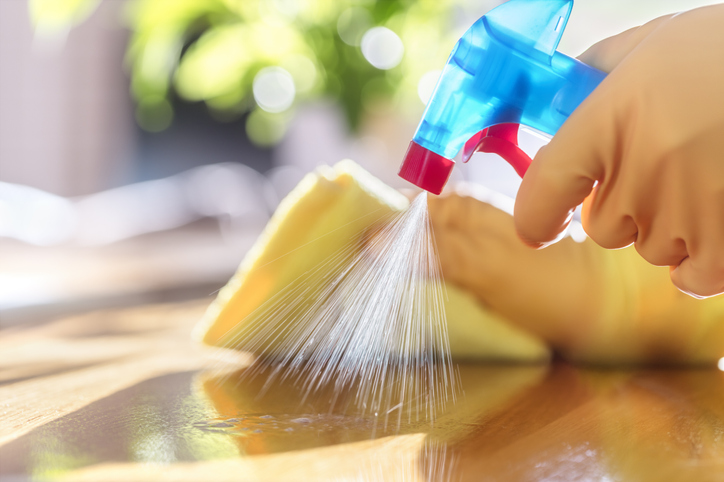According to the Centers for Disease Control and Prevention (CDC), the 2019 novel coronavirus or COVID-19 is transmitted primarily when healthy people come in close contact with someone infected who is sneezing or coughing. This is why social distancing is still considered one of the best ways of prevention.
But what about the chances of getting the virus after you’ve touched a contaminated surface, and then touched your own eyes, nose or mouth? In this article, we give you a few helpful tips from the CDC and Cleveland Clinic to make sure your home stays virus-free as the state reopens.

How long does COVID-19 survive on surfaces?
This yet-to-be-published study from the CDC and other institutions shows that COVID-19 can live for up to two to three days on surfaces made of plastic and stainless steel.
This means making sure your home is clean is imperative during this time. Remember to frequently clean and disinfect high-touch surfaces in your home, including doorknobs, light switches, countertops, tables and chairs, keyboards, and even mobile phones.
Here are some disinfecting tips from the CDC:
- Clean surfaces with soap and water, and then apply a disinfectant.
- Use a 70%-alcohol-based solution or a diluted household bleach solution to disinfect surfaces. Visit this page for a list of cleaning products considered effective against COVID-19 by the Environmental Protection Agency.
- Read the instructions found on the label of your cleaning product, and remember to check the expiration date.
- Make sure you have adequate ventilation when you need to disinfect surfaces.
- Avoid touching your eyes, nose, and mouth at all times while you’re in the process of disinfecting surfaces. Wear disposable gloves if you have them, and make sure to wash your hands thoroughly after you’re done.
Can you get infected through food consumption?
COVID-19 affects our bodies’ respiratory system and not our digestive system. The US Food and Drug Administration says there’s currently no reason to believe the virus has been transmitted through food products or packaging.
Officials, however, advise everyone to adopt basic guidelines for food safety, such as washing hands before you prepare or eat food, using clean utensils, and ensuring proper storage of food. These same guidelines should apply to restaurants and delivery services as well.
COVID-19 on Fabrics
No specific study has been published yet regarding how long the virus can live on clothes and other types of fabrics. To be extra safe, it’s a good idea to change your clothes immediately in case you’ve returned from outside and put them in a safe spot that will prevent other members of your household from coming in contact with them.
When you’re washing your clothes and other fabrics, the CDC recommends using the warmest setting appropriate for your clothes, before drying them off completely.
Eliminating the Virus from Your Skin
During this pandemic, one of the most effective ways to stay safe from the virus is to simply make sure your hands are always clean, and avoid touching your face at all costs.
Your hands are usually the first point of contact with surfaces that might have the virus, creating a path of transmission whenever you touch your face.
Always keep these tips in mind in order to ensure a clean environment for your household, which will hopefully decrease the likelihood of potentially coming in contact with the COVID-19 virus.
Stay safe, everyone!
If you’re searching for Cleveland, Ohio homes, get in touch with me at 440.823.2449 or send an email to MichelleMcQuade(at)HowardHanna(dotted)com today.

